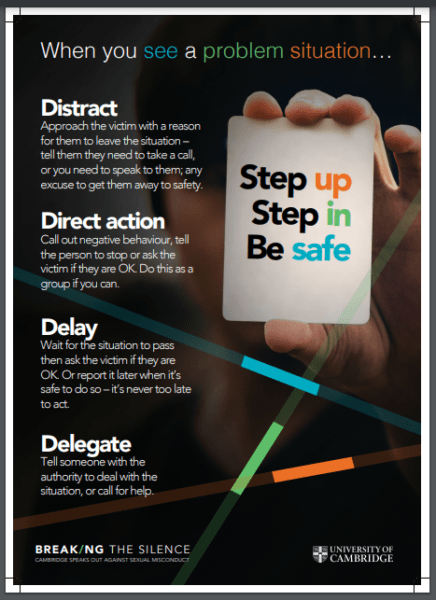Sexual violence affects millions around America. The problem with reporting is that though many women and men experience harassment, many are reluctant to notify officials because they worry they won’t be believed. It is important for schools to report accurately to encourage students to report sexual harassment and violence.
Title IX legislation eliminates sex-based discrimination to ensure all students both female and male have access and quality education. It offers protection from athletics and admission to housing and sexual harassment. Every public school that receives federal funding is required to report this information. According to the American Association of University Women, “Yes. Title IX covers all forms of sexual harassment, and sexual violence is considered a form of sexual harassment. Sexual harassment under Title IX includes any unwelcome sexual conduct, such as unwelcome sexual advances, requests for sexual favors, and other verbal, nonverbal, or physical conduct of a sexual nature. Sexual violence refers to physical sexual acts perpetrated against a person’s will or where a person is incapable of giving consent. Title IX also prohibits sex-based harassment, which may include acts of verbal, nonverbal, or physical aggression, intimidation, or hostility based on sex or sex-stereotyping, even if those acts do not involve conduct of a sexual nature.”
According to RAINN sexual violence statistics, women age 18-24 are at higher risk of sexual violence; 13% of students experience rape or sexual assault; 21% of transgender, genderqueer, and gender non-confirming students have been sexually assaulted. Sexual harassment affects health. It can cause loss of appetite, depression, anxiety, post-traumatic stress disorder, and suicidal thoughts.
Ways anyone can work to end sexual violence on campus:
 1. When someone you know is sexually assaulted or harassed, remember these three steps: believe, validate, and empower. “I believe you” can be the most powerful words that survivors hear. You can validate their trauma and pain with statements like “I’m so sorry this happened to you” or “You did nothing to deserve this.” Empower the survivor to make their choice about next steps, giving them options such as a medical exam, a police report, or a visit to a rape crisis center.
1. When someone you know is sexually assaulted or harassed, remember these three steps: believe, validate, and empower. “I believe you” can be the most powerful words that survivors hear. You can validate their trauma and pain with statements like “I’m so sorry this happened to you” or “You did nothing to deserve this.” Empower the survivor to make their choice about next steps, giving them options such as a medical exam, a police report, or a visit to a rape crisis center.
2. Educate yourself on local resources and activism groups. RAINN can help you find your local rape crisis center.
3. Consider joining the effort by volunteering for a hotline or activism events. You can sign up to be a volunteer at ZCenter here.
4. Be an active bystander. Learn more here.

For more information, please see these important resources for statistics on sexual violence:
Campus Sexual Violence, RAINN
Title IX, AAUW
Written by Denisse Ochoa, BA Sociology Candidate at University of Wisconsin-Parkside, ZCenter Outreach Intern
ZCenter aims to end sexual violence, mobilize and educate the public, and support survivors of sexual assault. Our blog addresses issues related to ending oppression and violence, since all oppression and violence are intersectional with sexual violence. All ZCenter blog posts are written by state certified staff, interns, and volunteers. For questions on authorship or content, please email info@zcenter.org.

